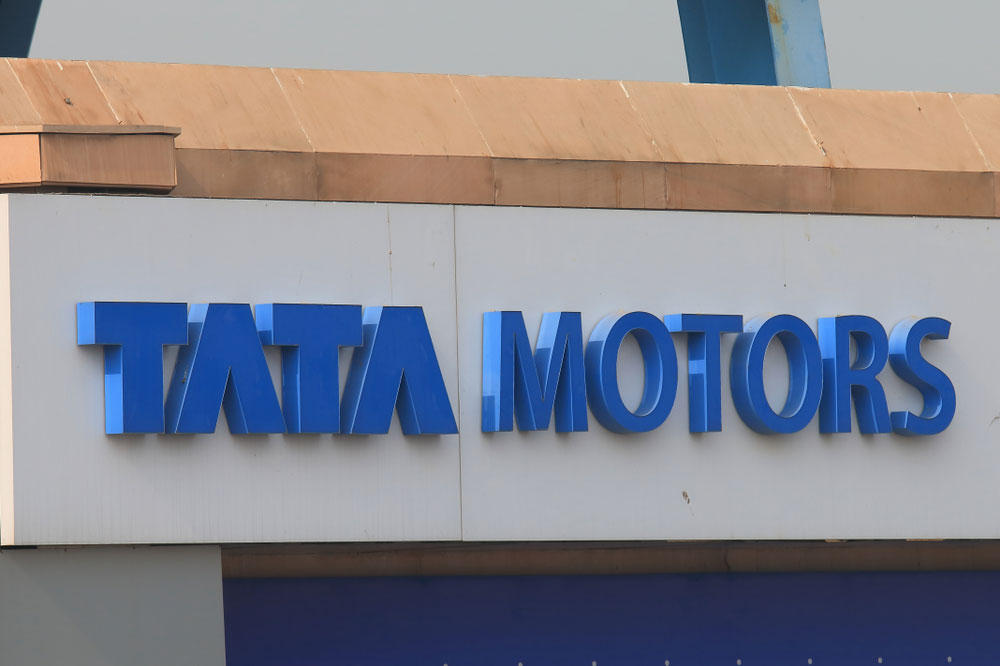The Covid-19 pandemic has hit Tata Motors hard with the auto maker posting higher losses than anticipated by the Street for the quarter ended March 31, 2020.
Consolidated losses at Tata Motors during the period came in at Rs 9,894.25 crore against a net profit of Rs 1,117.48 crore in the same period of the previous year.
Analysts had expected the company to record a loss of Rs 2,000 crore for the quarter.
The huge loss came as revenues took a beating because of the spread of the coronavirus and the subsequent lockdown globally. Consolidated revenues plummeted 28 per cent to Rs 61,949.39 crore from Rs 85,676.33 crore in the year-ago period. Of this, revenues at its subsidiary — Jaguar Land Rover (JLR) — declined to £5,426 million from £7,134 million in the same period last year, a drop of 24 per cent.
However, its standalone revenue took a much sharper knock as it fell to Rs 9,653.80 crore from Rs 18,428.60 crore in the year-ago period, down almost 48 per cent.
Commenting on the performance during the period, Tata Motors said that while Covid-19 impacted the seasonally strongest quarter, the India business was affected further by low GDP growth, liquidity, axle-load norms and transition to BS-VI.
JLR, following lower sales, suffered a loss of £501 million in the fourth quarter compared with a profit of £121 million in the year-ago period. The loss for the full year stood at £422 million.
JLR recovering
JLR said it responded quickly by implementing a temporary shutdown of all its plants and rigorous cost and investment controls to conserve cash as much as possible. It is now seeing encouraging recovery in China with all its dealers now open .
Sales in China were even up 4.2 per cent in May to 8,068 units. Sales were down just 3.1 per cent in April at 6,828 vehicles.
JLR is now gradually resuming production at the Solihull and Halewood vehicle manufacturing plants and engine plant in the UK, the Slovakia plant, and the contract assembly line in Austria.
“In this fluid situation, the company will focus on conserving cash by rigorously managing cost and investment spends to protect liquidity. The company has deferred or cancelled lower margin and non-critical investment and is targeting investment spending of £2.5 billion in 2020-21, substantially lower than £3.3 billion in 2019-20 and £3.8 billion in 2018-19,” JLR said.
“JLR’s early action to transform its business meant that as a company we were on track to meet our full-year expectations and operational and financial targets before the pandemic hit in the fourth quarter...In China, we are beginning to see recovery in vehicle sales and customers are returning to our showrooms. Our operational fitness gives me confidence that we can weather this storm,” JLR chief executive Ralf Speth said.
At a standalone level, Tata Motors said it will focus on conserving cash by rigorously managing costs and investment spends to protect liquidity.
It has chalked out a cost savings programme of Rs 1,500 crore in India and a cash improvement programme of Rs 6,000 crore.
Tata Motors also has a sombre outlook for the current quarter.
“With peak lockdowns in the first quarter, the company expects significantly lower sales in the quarter and negative free cash flow of about Rs 5,000 crore, around Rs 3,500 crore of which is related to one-time working capital outflows,” said Guenter Butschek, CEO and MD of Tata Motors.
“The auto industry faced strong headwinds in FY20 amid a slowing economy because of multiple factors -liquidity crisis, high fuel prices, changes in axle load norms and BS-VI transition, all leading to weak consumer sentiments and subdued demand across segments. Disruption in the supply chain induced by the pandemic and the nationwide lockdown in mid-March 2020 added to the problems,” Butschek added.











